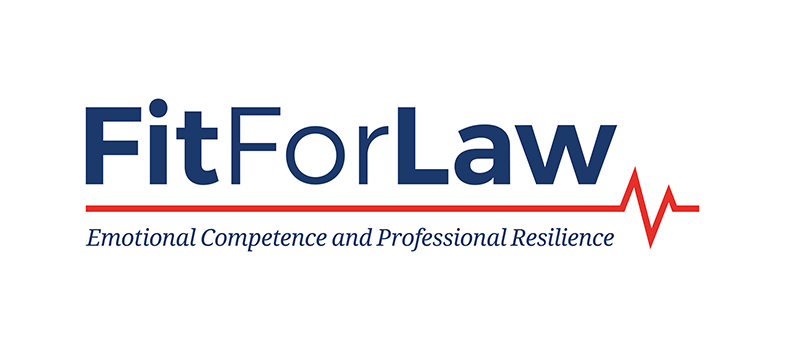References
Benard, B. (2004) “Resiliency: What we have learned”, San Francisco, WestEd.
Blanchette, I. and Richards, A. (2010) "The influence of affect on higher level cognition: A review of research on interpretation, judgement, decision making and reasoning." Cognition & Emotion 24(4), 561-595.
Bornstein, B. H. and Wiener, R. L. (2010) “Emotion and the Law: A Field Whose Time Has Come” in Bornstein, B. H. and Wiener, R. L. (eds) (2010) Nebraska Symposium on Motivation.Emotion and the Law. Psychological Perspectives, New York, Dordrecht, Heidelberg, London, Springer, pp.1-12.
Boyatzis, R.E., Goleman, D. and Rhee, K., (2000) “Clustering competence in emotional intelligence: Insights from the Emotional Competence Inventory (ECI)”, Handbook of emotional intelligence, 99(6), pp.343-362.
Brackett, M.A., Rivers, S.E. and Salovey, P., 2011. Emotional intelligence: Implications for personal, social, academic, and workplace success. Social and Personality Psychology Compass, 5(1), pp.88-103.
Caruso, D. R. and Salovey, P. (2004) The Emotionally Intelligent Manager: How to develop and use the four key emotional skills of leadership (San Francisco, Jossey-Bass).
Damasio, A. (2006) Descartes” Error (London, Vintage).
Deci, E. L. and Ryan, R. M. (2000) “The “What” and “Why” of Goal Pursuits: Human Needs and the Self-Determination of Behavior”, Psychological Inquiry, 11(4), pp.227-268.
Hatfield, E., Rapson, R. L. and Le, Y.-C. L. (2011) Emotional Contagion and Empathy in: Decety, J. and Ickes, W. (eds) (2011) The Social Neuroscience of Empathy, Cambridge, Massachusetts and London, England, The MIT Press.Holmes, V. (2015) “Giving Voice to Values’: enhancing students’ capacity to cope with ethical
Holmes, V. (2015) “Giving Voice to Values’: enhancing students’ capacity to cope with ethical challenges in legal practice”, Legal Ethics, 18:2, pp.115-137.
Houkes, I., Winants, Y., Twellaar, M., & Verdonk, P. (2011) “Development of burnout over time and the causal order of the three dimensions of burnout among male and female GPs. A three-wave panel study”, BMC Public health, 11(1), 240.
Ipsos MORI (2017) “Veracity Index 2017”, https://www.ipsos.com/sites/default/files/ct/news/documents/2017-11/trust-in-professions-veracity-index-2017-slides.pdf (accessed 21st May 2018).
Jones, E. (2018) “Making practice more affective: Emotional intelligence as a legal meta-competency”, European Journal of Current Legal Issues, 24(1).
Kolb, D. A. (1984) Experiential Learning: experience as the source of learning and development, Englewood Cliffs, Prentice Hall.
Lazarus, R.S., 1993. From psychological stress to the emotions: A history of changing outlooks. Annual review of psychology, 44(1), pp.1-22.
Lupien, S.J., Maheu, F., Tu, M., Fiocco, A. and Schramek, T.E., (2007) “The effects of stress and stress hormones on human cognition: Implications for the field of brain and cognition”, Brain and cognition, 65(3), pp.209-237.
Luthar, S.S., Cicchetti, D. and Becker, B., (2000) “The construct of resilience: A critical evaluation and guidelines for future work”, Child development, 71(3), pp.543-562.
Maslach, C. and Jackson, S.E., (1981) “The measurement of experienced burnout”, Journal of organizational behavior, 2(2), pp.99-113.
Maughan, C. and Webb, J. (2005) Lawyering Skills and the Legal Process (2nd Edition), Cambridge, England, Cambridge University Press.
Mayer, J. D., Salovey, P. and Caruso, D. R. (2004) “Emotional Intelligence: Theory, Findings and Implications”, Psychological Inquiry, Vol. 15(3), pp.197-215.
Schön, D. A. (1990) Educating the Reflective Practitioner: Toward a New Design for Teaching and Learning in the Professions, San Francisco, California, Jossey-Bass.
Silver, M. (2004) The Affective Assistance of Counsel. Practising Law as a Healing Profession, Durham, North Carolina, Carolina Academic Press.
Wong, C.S. and Law, K.S., 2002. The effects of leader and follower emotional intelligence on performance and attitude: An exploratory study. The leadership quarterly, 13(3), pp.243-274.
Zautra, A.J., (2006) Emotions, stress, and health, New York, Oxford University Press.
Back to previous pagePrevious
6. Becoming a reflective practitioner
